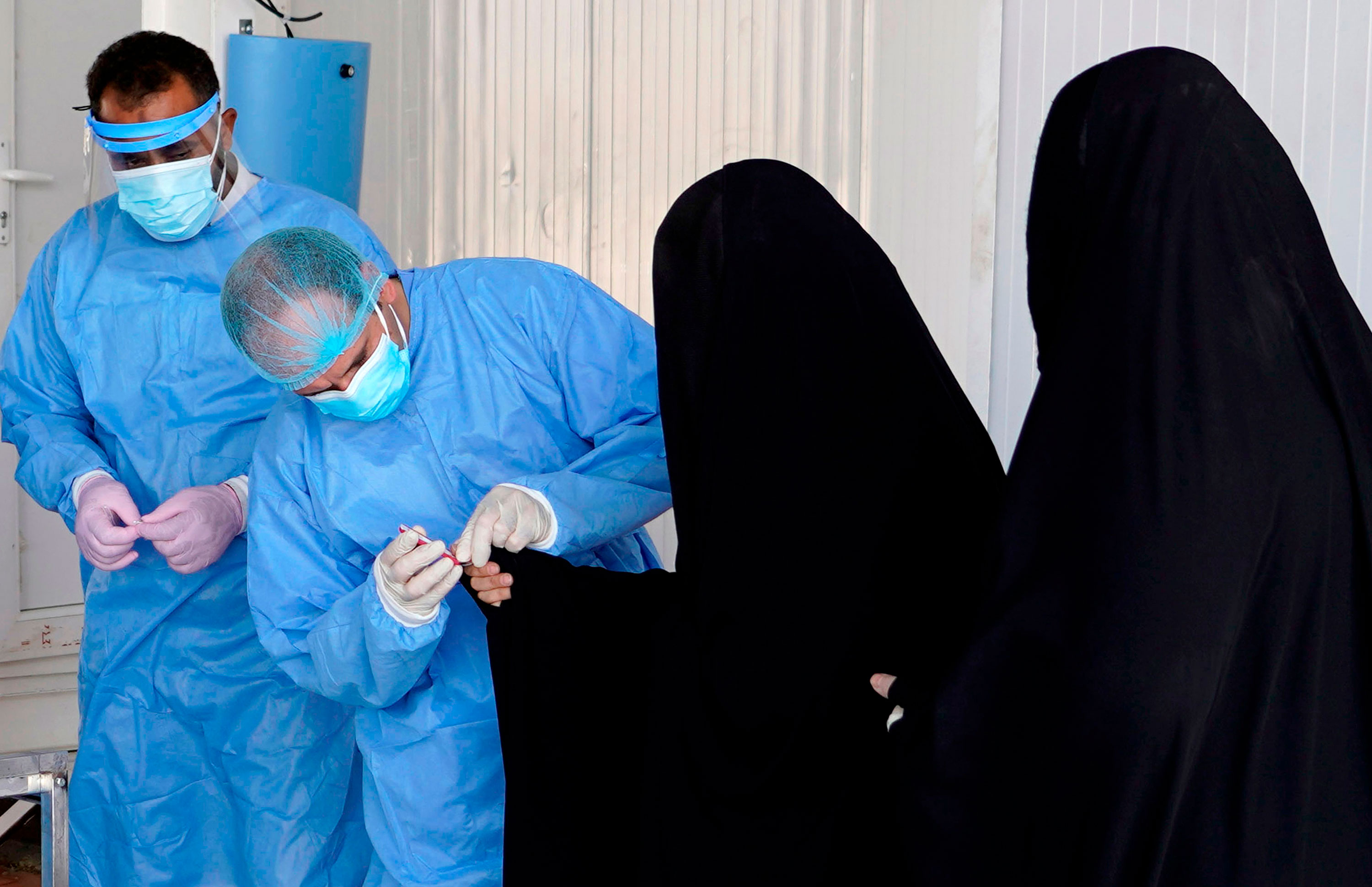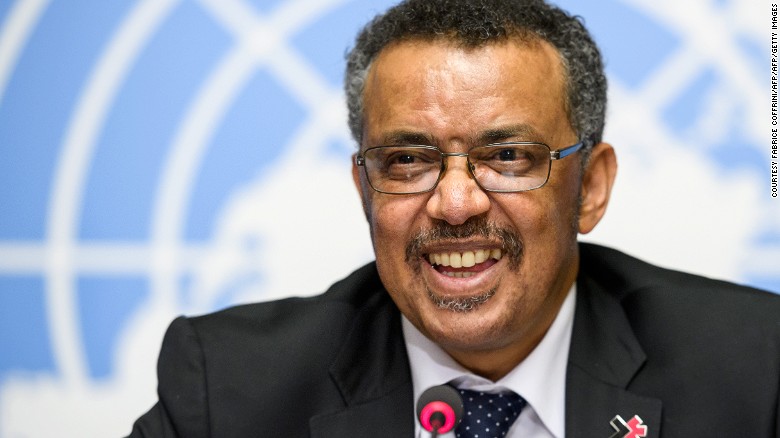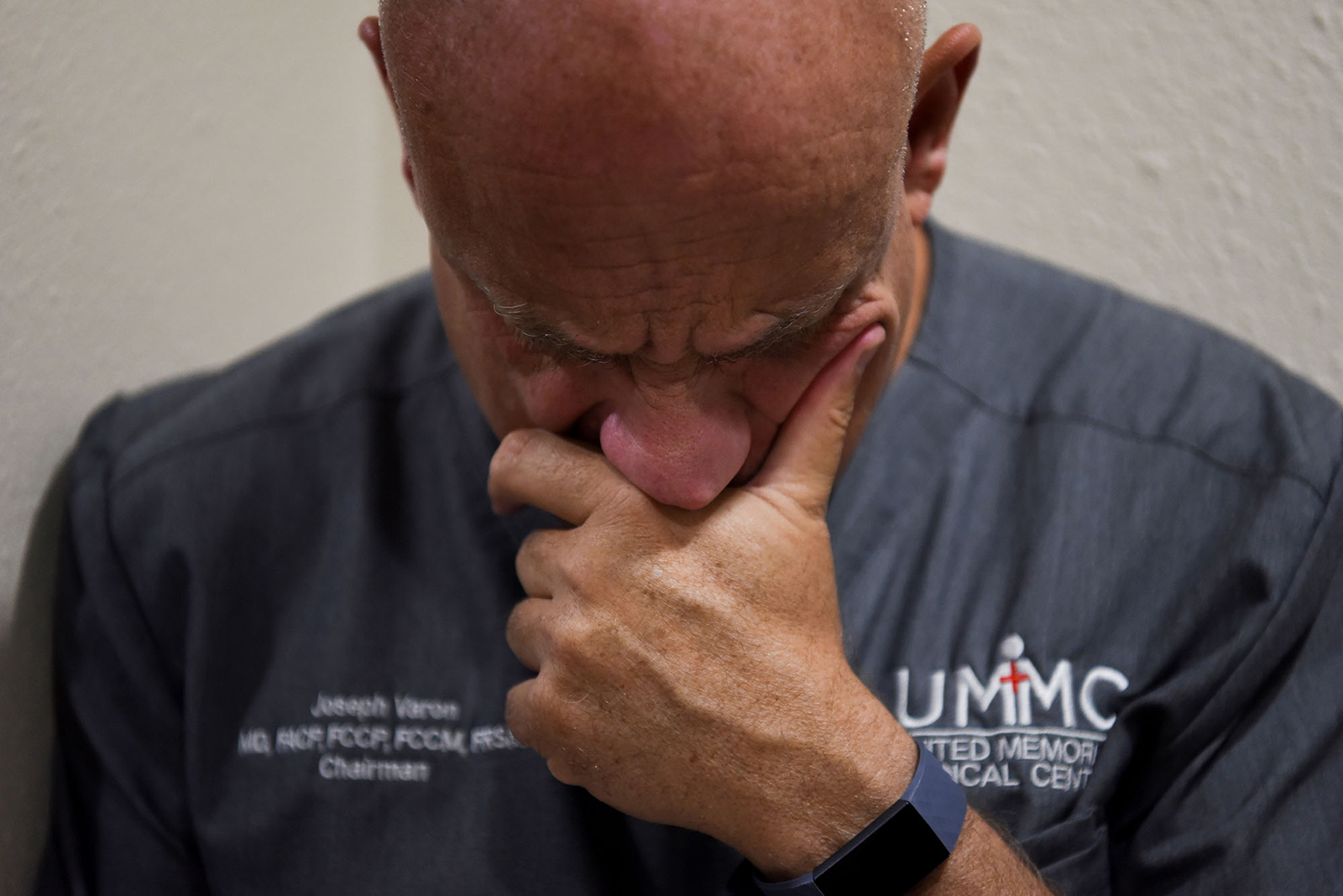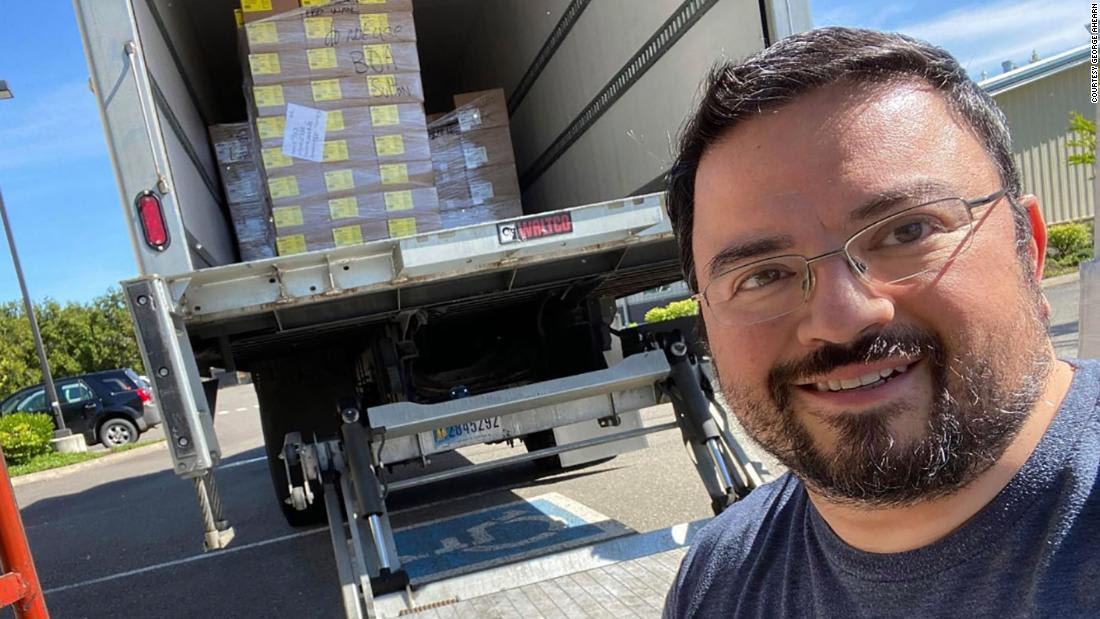England may need to choose between pubs or schools, health expert says
From CNN’s Arnaud Siad in London
The United Kingdom may need to choose between keeping pubs open or allowing schools to reopen it if it wants to keep coronavirus infection rates down, a key member of the group advising the government on Covid-19 response told British media.
Medley's comments were made a day after crowds were seen in bars and pubs in parts of northern England despite a spike in cases the reintroduction of some government restrictions in several areas.
Pubs were allowed to reopen across the UK on July 4.
“I think we’re in a situation whereby most people think that opening schools is a priority for the health and wellbeing of children,” Medley said.
On Friday: Prime Minister Boris Johnson said England would “squeeze the brake pedal” on the next phase of re-opening in a bid to slow down the rising rates of coronavirus infection.
New restrictions were announced for northern England late Thursday in an effort "to stop the spread of Covid-19." Across the country, certain venues that were schedule to reopen Saturday – including , casinos, bowling allies, skating rinks and “the remaining close contact services – will remain shuttered until at least Aug. 15.
Coronavirus cases continue to rise in Poland
From CNN’s Arnaud Siad in London
For the third day in a row, Poland reported the highest number of new daily coronavirus cases since the start of the pandemic, with 658 new infections reported on Saturday, according to the country's health ministry.
The ministry also reported five new deaths, brining the country's total to 1,721.
Some context: Poland reported 657 new infections on Friday and 615 on Thursday – both were new records at the time.
On Thursday, the Polish government told CNN it was considering different scenarios to bring the infection levels under control.
Prime Minister Mateusz Morawiecki said at a news conference on the same day that he would like to avoid another lockdown due to the damage it can inflict on the economy.
Covid-19 might affect hearing too, a small study shows
Some coronavirus survivors have been experiencing hearing problems that lasted until long after they had been released from hospital, a small study has revealed.
Audiologists at the University of Manchester surveyed 121 adults who had been hospitalized with Covid-19 eight weeks after they were released.
When asked about changes to their hearing, 16 people reported their hearing was worse. Eight reported deterioration in hearing and another eight reported tinnitus -- hearing noises that are not caused by an outside source.
The researchers said the results, published in a letter to the International Journal of Audiology, add more anecdotal evidence to our understanding of the long-term effects of coronavirus on health.
Kevin Munro, professor of audiology and the Hearing Health Theme Lead at the Manchester Biomedical Research Centre, said scientists already knew that other viruses such as measles, mumps and meningitis can cause hearing loss and that coronaviruses can damage the nerves that carry information to and from the brain.
“It is possible, in theory, that Covid-19 could cause problems with parts of the auditory system including the middle ear or cochlea," he said.
Iraq reports another record increase in cases
 A health worker administers a coronavirus test at a testing facility Najaf, Iraq, on July 15. -/AFP/Getty Images
A health worker administers a coronavirus test at a testing facility Najaf, Iraq, on July 15. -/AFP/Getty ImagesIraq’s Ministry of Health reported 3,346 news coronavirus infections on Friday, a new record in daily cases.
More than 124,600 people have been infected in Iraq and 4,741 have died.
Iraq is one of several countries in the Middle East that have been fighting rising numbers of new infections while also struggling with a severe heatwave this week.
In the capital Baghdad, two people were killed and 11 others injured during protests over electricity shortages, and lack of basic goods, that erupted in the capital's Tahrir square earlier this week as temperatures reached 50C (122F).
Iraq announced a 10-day curfew after the country surpassed 100,000 Covid-19 cases on Sunday. The announcement came just before the Eid al-Adha holiday, which started on Thursday night.
The four-day holiday is normally marked by congregational Eid prayers, family gatherings and large feasts. Eid al-Adha follows on from the Hajj pilgrimage to Mecca in Saudi Arabia, which was also affected by coronavirus -- instead of the usual 2 million, only 1,000 pilgrims were allowed to take part this year.
He heard about farmers ditching unsold produce. So he delivered 3 million pounds of it to food banks
From CNN's Gabriel Kinder
 George Ahearn working on a delivery of eggs. Photo: George Ahearn
George Ahearn working on a delivery of eggs. Photo: George AhearnGeorge Ahearn, who grew up in the farming town of Othello, Washington, co-founded EastWest Food Rescue after learning that Covid-19 was costing local farmers so much business that they were willing to destroy their crops.
His non-profit has since moved three million pounds of produce from farms in eastern Washington to the western part of the state for distribution to hundreds of food banks and meal programs.
"I know these people that I grew up with on one hand, and on the other hand I know there is a need here; I'm just going to connect the two dots," Ahearn, 45, who now lives in Bothell, Washington, and also runs a nursing business told CNN.
The "rock star" leader of the world's global health agency WHO
From CNN's Emma Reynolds in London
 Tedros Adhanom Ghebreyesus is not only the WHO's first African Director-General but also the first non-physician to lead the global health agency. Photo: FABRICE COFFRINI/AFP/Getty Images
Tedros Adhanom Ghebreyesus is not only the WHO's first African Director-General but also the first non-physician to lead the global health agency. Photo: FABRICE COFFRINI/AFP/Getty ImagesIn a speech before he was voted in as the head of the World Health Organization, Tedros Adhanom Ghebreyesus said that when he was seven, his younger brother died "from one of the many child killers in Africa."
He said that could easily have been him, and it was "pure luck" that he was now on stage running for a global leadership position. He said he was committed to reducing inequality and ensuring universal health coverage because he had grown up "knowing survival to adulthood cannot be taken for granted, and refusing to accept that people should die because they are poor."
Who is the man leading the WHO at the time of the worst health crisis in a century? Read more here.
This doctor just endured the deadliest week of his career
From CNN's Kyle Almond
 Dr. Joseph Varon, the chief medical officer at Houston’s United Memorial Medical Center, gets home after a long day at work. Callaghan O'Hare/Reuters
Dr. Joseph Varon, the chief medical officer at Houston’s United Memorial Medical Center, gets home after a long day at work. Callaghan O'Hare/ReutersDr. Joseph Varon hasn’t had a day off in months.
Friday was his 134th consecutive day leading the coronavirus unit at Houston’s United Memorial Medical Center.
“If you ask me how the hell have I been able to survive for 134 days nonstop, I guess it’s adrenaline,” he said. “But I'm running on fumes. It’s tough.”
And last week was his toughest yet. With Houston dealing with a surge in Covid-19 cases, he signed more death certificates than he has at any point in his career.
“People were dying every day,” he said.
 Varon and his team go over patient files during a daily meeting. “I’m afraid that at some point in time I'm going have to make some very serious decisions,” Varon said in July. “I’m starting to get the idea that I cannot save everybody.” Callaghan O'Hare/Reuters
Varon and his team go over patient files during a daily meeting. “I’m afraid that at some point in time I'm going have to make some very serious decisions,” Varon said in July. “I’m starting to get the idea that I cannot save everybody.” Callaghan O'Hare/ReutersVaron’s workday starts early. Around 4:30 or 5 a.m., he heads to the hospital and goes straight to the coronavirus unit where he and his team go over each patient’s case.
Then he starts making the rounds.
“He's involved with everything and very, very personal,” said photographer Callaghan O’Hare, who shadowed him several times over the past month. “He will sit on the bed with people and give them hugs and have a chat. It's pretty incredible to watch.”
Caring for the coronavirus patients takes a minimum of 10 hours each day, Varon said. After that, he meets with his other patients in the hospital — the ones who don’t have coronavirus.
“If I am lucky, I get home before 10 o'clock at night. If I’m not lucky, which is most of the time, I make it home around midnight,” he said.
Why Greece could be Europe's best holiday ticket right now
From CNN's Barry Neild in Vathia, Greece
 Suzanne Plunkett/CNN
Suzanne Plunkett/CNNGreece has worked hard to adapt its tourism offering in an age of infection. For the time being at least, this seems to be paying off, even as a second wave of infections threatens other European destinations.
Thanks in part to the fact that it's so far seen few cases, visiting many parts of Greece right now is almost like visiting a country where Covid-19 never happened.
Visitors need to complete paperwork before departure, giving details of where they'll be staying. On arrival, they're subject to random testing and could, if anyone on their flight tests positive, be quarantined for 14 days.
Germany sees "alarming" rise in infections
From CNN's Fred Pleitgen in Berlin
 Germany is offering free Covid-19 tests for travelers coming from abroad. Tobias Schwarz/AFP/Getty Images
Germany is offering free Covid-19 tests for travelers coming from abroad. Tobias Schwarz/AFP/Getty ImagesGermany has on Friday recorded the highest number of new daily infections since early May, according to data published Saturday by Germany’s center for disease prevention, The Robert-Koch Institute.
The country saw 955 new coronavirus cases. The last time Germany recorded a higher number was May 9.
The pandemic had largely been brought under control in Germany earlier this summer, but the government has been warning about new outbreaks of the disease in recent weeks.
The Robert-Koch Institute said laxer enforcement of distancing and hygiene rules, as well as travelers returning from abroad are to blame for the steep rise in cases.
"The number of 955 new infections is alarming. Especially since it is not large 'hot spots' but smaller clusters of infections," Germany's economy minister Peter Altmaier said on Twitter on Saturday. "The main risks need to clearly be named so that more targeted prevention becomes possible," he added.
Starting Saturday everyone coming to Germany will be able to get a free coronavirus test within 72 hours of arrival, according to a new directive from Germany’s health ministry.

 5 years ago
502
5 years ago
502 





